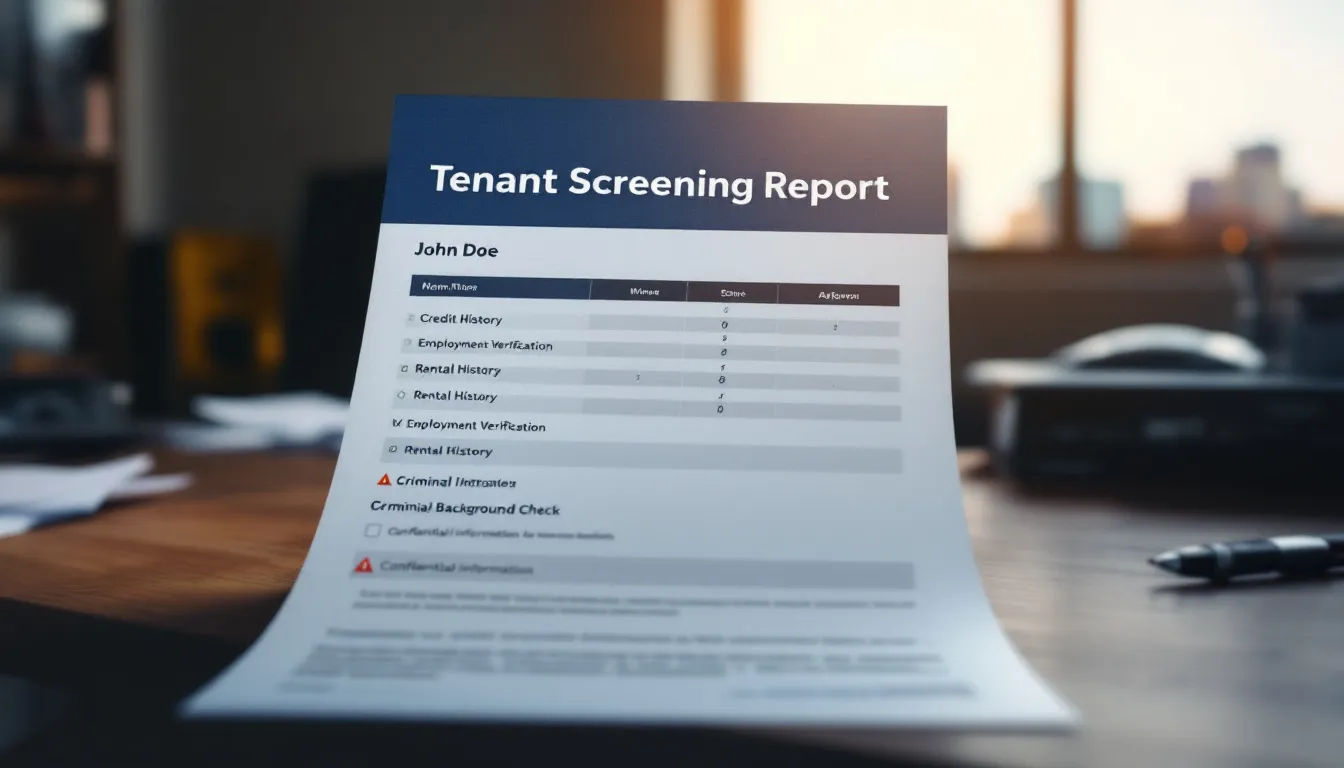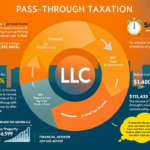
The way landlords evaluate prospective tenants is changing fast, thanks to artificial intelligence (AI). Instead of relying solely on phone calls, paper screening reports, and gut instincts, more property managers are using AI-powered tools to make smarter, faster decisions. But while this tech can save time and increase accuracy, it also raises legal and ethical questions that shouldn’t be ignored.
In this article, we’ll break down what AI tenant screening is, how it works, its benefits, potential pitfalls, and what landlords should keep in mind to stay compliant and fair during the screening process.
Introduction to Tenant Screening

Tenant screening is a crucial step in the rental process for property owners and managers. It involves verifying the creditworthiness, rental history, and background of prospective tenants to ensure they are reliable and responsible. The primary goal of tenant screening is to identify qualified tenants who will pay rent on time and take care of the property.
A comprehensive tenant screening process can help minimize the risk of eviction and property damage, providing peace of mind for property owners. Tenant screening services offer the necessary tools to make informed decisions about potential tenants, ensuring a successful rental experience.
Online tenant screening has become increasingly popular due to its convenience and efficiency. Property owners can access screening reports and credit reports online, making it easier to manage the rental application process. By leveraging these services, property owners can save time and reduce the risk of renting to unqualified tenants.
In summary, tenant screening is an essential part of the rental process. Property owners should not skip this step to ensure they select the best possible tenants for their properties.
What Is a AI-Powered Tenant Screening report?

AI tenant screening uses machine learning to quickly analyze large amounts of applicant data—things like credit scores, rental history, employment history, and criminal records. Instead of a person reviewing each rental application line-by-line, AI can highlight red flags, verify information, and even predict the likelihood of on-time rent payments. AI tools also verify the applicant’s identity through methods like SSN and knowledge-based questions to ensure authenticity.
Many platforms offer these tenant screening services online, so landlords can screen tenants anytime, anywhere. The goal? Make informed decisions, reduce vacancy periods, and avoid costly mistakes like missed rent or evictions.
Key Components of Tenant Screening

Effective tenant screening involves several key components that provide a comprehensive view of an applicant’s qualifications and potential risks. One of the most critical elements is the credit report, which offers insight into an applicant’s financial responsibility. By reviewing credit reports, property owners can assess whether a prospective tenant is likely to pay rent on time.
Background checks are another essential aspect of tenant screening. These checks reveal any criminal history or prior evictions, helping property owners avoid potential issues. Income verification is also crucial, ensuring that applicants have a stable source of income to cover rent payments.
Rental history is reviewed to provide information about an applicant’s past behavior as a tenant. This includes their track record of paying rent on time and maintaining the property. Tenant screening reports typically include a comprehensive background check, credit report, and eviction history, giving property owners a complete picture of the applicant’s background.
By considering these key components, property owners can make informed decisions and reduce the risk of renting to unqualified tenants. The tenant screening process is designed to provide a thorough evaluation of an applicant’s qualifications, helping property owners select the best possible tenants for their properties.
Tenant Screening Process

The tenant screening process typically begins with an application from a prospective tenant. Property owners can then request a screening report, which includes a credit report, background check, and eviction history. Applicants fill out an online application, providing personal and financial information necessary for the screening process.
The screening process is usually completed within a few days, with reports delivered directly to the property owner. This allows property owners to review the screening report and make an informed decision about the applicant quickly and efficiently.
The tenant screening process is designed to be efficient and convenient, saving property owners time and effort. By using online tenant screening services, property owners can streamline the rental application process and reduce the risk of renting to unqualified tenants.
In conclusion, the tenant screening process is an essential part of the rental process. Property owners should prioritize this step to ensure a successful rental experience and select the best possible tenants for their properties.
Benefits for Property Owners

AI can significantly streamline the tenant screening process. Here’s how it helps:
Speed: What used to take days can now take minutes.
Accuracy: AI tools can analyze data across multiple databases, including traditional credit scores, reducing human error.
Consistency: Standardized decision-making helps avoid unintentional bias.
Compliance support: Many tools are designed to align with fair housing laws.
AI also helps property owners identify high-risk applicants by detecting things like fake documents, gaps in employment, or unusual rental patterns that a human might miss.
These platforms often deliver reports that include rental history, credit checks, eviction records, and income verification, giving landlords a complete picture of the applicant’s background.
Many AI-powered tenant screening platforms offer free account setup and access to comprehensive tenant screening reports, making them cost-effective solutions for landlords.
Potential Pitfalls and Risks

Despite the convenience, AI isn’t foolproof.
Bias in data: If the AI is trained on biased data, it can replicate discriminatory practices, even unintentionally.
Lack of transparency: Many systems don’t explain why an applicant was denied.
No appeal process: Applicants often can’t challenge or clarify information.
These issues can lead to violations of the Fair Housing Act, which protects people from discrimination based on race, religion, gender, national origin, disability, or family status.
For example, someone who pays rent on time but uses housing vouchers might be unfairly flagged by the system simply because their financial profile doesn’t fit the AI’s model.
Landlords should also be aware of state laws that may affect the tenant screening process and ensure their AI tools comply with these regulations.
Government Guidance on AI Screening

In May 2024, the U.S. Department of Housing and Urban Development (HUD) issued guidance on AI tenant screening. Here’s what landlords should know:
AI tools must not discriminate, even unintentionally.
Landlords are responsible for ensuring the tools they use are fair and compliant.
Transparency and accountability are key—if someone is denied, they should understand why.
The guidance also emphasizes the importance of conducting comprehensive tenant background screenings to ensure fair and thorough evaluations.
Separately, the White House released a memo outlining best practices for AI in sensitive areas, including housing. Agencies are now required to review how their AI tools affect public safety and civil rights.
Best Practices for Property Managers

If you’re thinking about using AI for tenant screening, or already are, here are some practical tips:
Use a hybrid approach: Let AI handle the standard applications, but review special circumstances manually. Property managers should ensure they review completed applications thoroughly, as these include essential details such as household information and income.
Train your team: Make sure staff understand how the system works and what to look out for.
Stay transparent: Give applicants clear reasons if they’re denied and allow them to fill in gaps or appeal decisions.
Document decisions: Keep a record of why someone was approved or denied.
Monitor for fairness: Regularly audit the outcomes to make sure the tool isn’t creating bias.
Looking Ahead

AI in tenant screening is here to stay—and it’s only getting more advanced. We may soon see tools that assess non-traditional credit data, like social media behavior, or chatbots that assist tenants as they complete applications or answer screening-related questions.
AI can also provide comprehensive background checks and gain access to national databases in seconds. This efficiency translates into lower screening costs and more confident leasing decisions for property managers. Future AI tools may also help property managers create leases and other rental documents, further streamlining the rental process.
But no matter how sophisticated the technology becomes, human oversight will always be necessary. Landlords have a responsibility not just to protect their investments, but to ensure fair and lawful access to housing.
If used wisely, AI can be a powerful ally in that mission.
Final Thoughts
Tenant screening is evolving. AI offers big benefits, from saving time to improving accuracy—but it also comes with serious responsibilities. Property managers and landlords should embrace the advantages while staying mindful of the risks.
Make sure your screening practices are not just efficient, but also ethical, legal, and transparent. Always balance technology with empathy and compliance.
Dave is a seasoned real estate investor with over 12 years of experience in the industry. Specializing in single-family residential real estate, David’s strategic approach combines market analysis, financial acumen, and a deep understanding of urban development trends to maximize investment returns.










